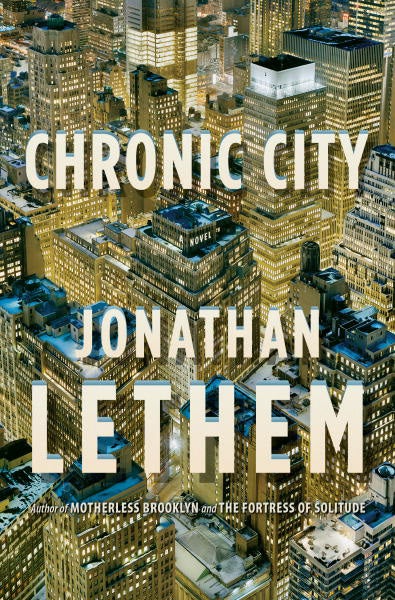The Next Generation
Like anybody who reads, I am concerned about the new generation of writers. By this I mean people my age, who are in college or have recently graduated and who plan on writing. My concerns are two-fold, but there is some hope. There is even some excitement.
To speculate about what the future crop of writers will look like, we can look to the current crop, the “post-post-modernists,” the “Gen-Xers.” These are people such as Jonathan Franzen, Jonathan Lethem, Dave Eggers, and Michael Chabon. I am acquainted with several of these writers only well enough to know that I dislike Michael Chabon’s writing, although I did like the film Wonder Boys, and have an on-the-fence liking of Dave Eggers, having laughed loudly at some clever things he has written while simultaneously hoping that I never meet him in person. The few short pieces I’ve read by Jonathan Lethem I thought were solid enough. But I can summarize them all as being part of the contemporary generation of literary writers that has no particular name. Just as Ernest Hemingway and F. Scott Fitzgerald were the writers of the “Lost Generation” and Norman Mailer and James Jones were post-WWII writers, the two Jonathans, Dave, and Michael are part of the…um…what do we call these days?


The most obvious bad news is that none of these writers—yes, I’m making an assumption about the ones I have not read—can lay a finger on Hemingway or Fitzgerald or Mailer or Jones. The quality of literature really has declined. Eggers is inclined to writing short, sharp sentences that he tries to pass off as their own paragraph. He layers irony upon irony, while being unable to write a heartfelt ironic story in the vein of Hemingway’s Indian Camp (for example). Chabon writes these whimsical, sentimental tales that sound long-winded and forced to me. And now two more writers of the same generation have come to mind: the late David Foster Wallace and the truly obnoxious Chuck Palahniuk. Chuck Palahniuk has written the same book more than a dozen times. By that I mean he rearranges the words in each sentence, turns the level of outrageousness up or down, slaps on a narrative tone (always first-person) and calls it a book. Foster Wallace appears to be the most popular of all these guys, especially after his death. I’ve never read him either. All I can say about him is the idea of writing a 2,000 page book which is called your masterpiece to me is always suspect.

My fear is that this nameless group of writers—the Gen-Xers, the post-post-modernists—will be the only writers influencing the Gen-Yers. It isn’t that I think they’re untalented (except for Palahniuk) or that they are egotistical enough to think they are a great generation of literary artists. But if it is primarily their voices and themes that carry over to the minds of my generation, then we have something to worry about. The writers of the Gen-X period tend towards genre-mash-ups and existentialist postures. They write about characters who are bored out of their minds if they aren’t whining. None of their books concern real experience. Their stories have more to do with an elite, ironic, information-age experience of reusing and discarding earlier stories and earlier writers. None of it feels real. But again, these writers are so hip, that “that’s the point.”
I believe that the literature of Generation Y may rise above the previous generation, though. We have lived through some profound cultural experiences that have shaped our youth: 9/11, environmental disasters, economic downturns. We are a generation that is so over-entitled, that there is no way we will be able to get what we want when we’re older. There is no way we will be as rich as previous generations. The writers of Generation X lived through the post-hippie era, the slow collapse of the Soviet Union and Reaganomics. They were also super-entitled, and got exactly what they wanted, and became prosperous. What do you get when you live through a fairy tale with a bow-tied ending? A bunch of artists resorting to irony, self-deprecation, and re-packaging.
So my simple hope is that my generation has experienced times uncertain enough, shaky enough, and almost apocalyptic enough, to churn out a few interesting stories. But I could be wrong. As it happens, the wave of writers from Generation Y has already started, because the older end of the generation is now in their early 30’s. I’ll be looking for signs of life out there.
In conclusion, check out the books of Generation X that we have in Snell Library, and see if they have some merits (or faults) I may have missed. I’d like to hear some examples of very recent, Generation Y writers we have in stock as well.
